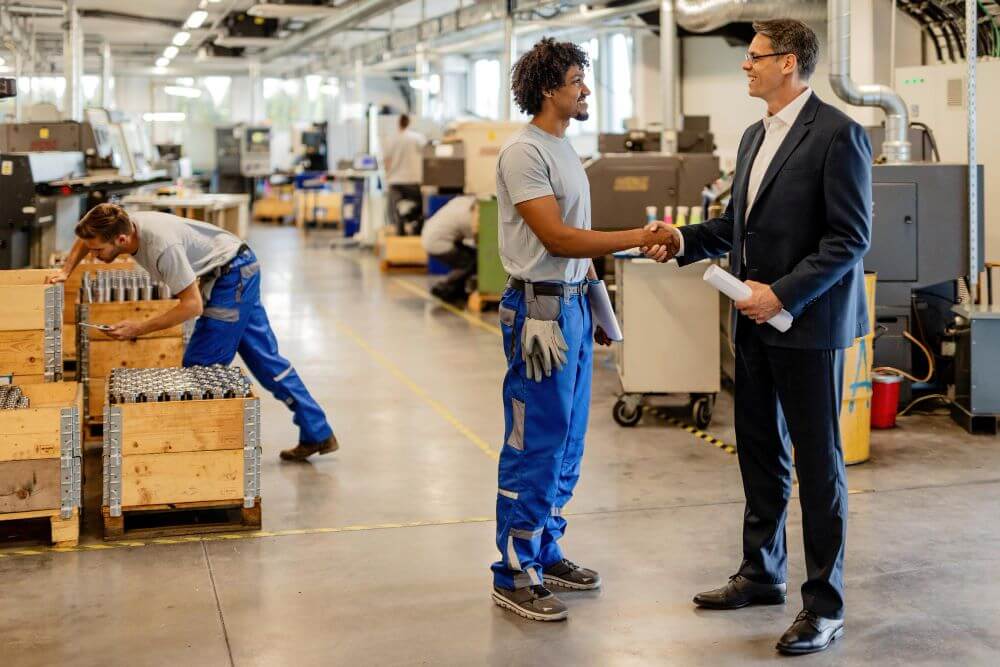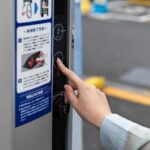In today’s fast-paced industrial and commercial environments, efficient material handling solutions are crucial for operational success. Trolleys serve as fundamental equipment across countless industries, from hospitals and hotels to warehouses and manufacturing facilities. The choice of trolley manufacturer can significantly impact productivity, safety, and long-term operational costs, making it essential to understand what distinguishes exceptional manufacturers from the competition.
- The Critical Role of Trolleys in Modern Operations
- Key Characteristics of Leading Trolley Manufacturers
- Engineering Excellence and Design Innovation
- Quality Control and Manufacturing Standards
- Customization Capabilities
- Understanding Manufacturing Processes and Materials
- Evaluating Manufacturer Capabilities and Services
- Product Range and Specialization
- Technical Support and Customer Service
- After-Sales Support and Warranty Coverage
- Sustainability and Environmental Considerations
- Eco-Friendly Manufacturing Practices
- Product Longevity and Recyclability
- Compliance with Environmental Regulations
- Cost Considerations and Value Assessment
- Frequently Asked Questions
- Conclusion
The Critical Role of Trolleys in Modern Operations
Enhancing Workplace Efficiency
Well-designed trolleys revolutionize workplace efficiency by reducing manual handling requirements and streamlining material transport processes. From medical equipment in hospitals to housekeeping supplies in hotels, trolleys enable workers to move multiple items safely and efficiently, reducing physical strain and increasing productivity. The right trolley can transform cumbersome multi-trip tasks into single, manageable journeys.
Safety and Ergonomic Considerations
Workplace safety regulations increasingly emphasize proper manual handling techniques and equipment that reduces injury risk. Quality trolleys incorporate ergonomic design principles that protect workers from back strain, repetitive stress injuries, and workplace accidents. Features like appropriate handle heights, smooth-rolling wheels, and stable construction contribute significantly to workplace safety compliance.
Industry-Specific Requirements
Different industries demand specialized trolley solutions tailored to unique operational needs. Healthcare facilities require trolleys that meet strict hygiene standards and can accommodate medical equipment safely. Food service operations need trolleys with easy-clean surfaces and temperature-resistant materials. Understanding these industry-specific requirements helps identify manufacturers capable of delivering appropriate solutions.
Key Characteristics of Leading Trolley Manufacturers
Engineering Excellence and Design Innovation
Top-tier manufacturers invest heavily in research and development to create trolleys that address real-world challenges. This includes developing innovative wheel technologies for improved maneuverability, creating modular designs that adapt to changing needs, and incorporating advanced materials that enhance durability while reducing weight.
Quality Control and Manufacturing Standards
Reputable manufacturers maintain rigorous quality control processes throughout production, ensuring consistent performance and reliability. This includes material testing, structural integrity assessments, and performance validation under real-world conditions. ISO certifications and industry-specific quality standards often distinguish leading manufacturers from competitors.
Customization Capabilities
The ability to customize trolleys for specific applications sets exceptional manufacturers apart. Whether modifying dimensions for unique spaces, adding specialized attachments for particular equipment, or incorporating company branding, customization capabilities demonstrate a manufacturer’s commitment to meeting precise customer requirements.
Understanding Manufacturing Processes and Materials
Material Selection and Durability
Leading manufacturers carefully select materials based on intended applications and environmental conditions. Stainless steel offers superior corrosion resistance for food service and healthcare applications, while aluminum provides lightweight strength for general industrial use. Plastic components may be appropriate for specific applications where weight reduction or chemical resistance are priorities.
Precision Manufacturing Techniques
Modern trolley manufacturing employs precision techniques including laser cutting, robotic welding, and computer-controlled machining to ensure consistent quality and dimensional accuracy. These advanced manufacturing processes result in trolleys with superior fit and finish, enhanced durability, and reliable performance over extended service lives.
Surface Treatments and Finishing
Professional-grade surface treatments protect trolleys from corrosion, wear, and contamination while enhancing appearance. Powder coating, electroplating, and specialized protective films extend service life and maintain professional appearance even in demanding environments. The quality of surface treatments often indicates overall manufacturing excellence.
Evaluating Manufacturer Capabilities and Services
Product Range and Specialization
Comprehensive manufacturers offer diverse product ranges spanning multiple industries and applications. However, specialization in particular market segments can indicate deeper expertise and superior solutions for specific needs. A specialized trolley manufacturer may provide more innovative solutions and better support for particular industry requirements than generalist competitors.
Technical Support and Customer Service
Exceptional manufacturers provide comprehensive technical support throughout the product lifecycle, from initial specification through installation, maintenance, and eventual replacement. This includes detailed product documentation, training resources, and responsive customer service that addresses questions and concerns promptly.
After-Sales Support and Warranty Coverage
Strong warranty coverage and after-sales support demonstrate manufacturer confidence in product quality while protecting customer investments. Leading manufacturers typically offer comprehensive warranties covering materials, workmanship, and performance, backed by responsive service networks that minimize downtime when issues arise.
Sustainability and Environmental Considerations
Eco-Friendly Manufacturing Practices
Environmental consciousness increasingly influences purchasing decisions across all industries. Progressive manufacturers implement sustainable practices including waste reduction, energy-efficient production methods, and responsible material sourcing. These practices often correlate with overall operational excellence and long-term business viability.
Product Longevity and Recyclability
Durable, long-lasting trolleys reduce environmental impact through extended service lives and reduced replacement frequency. Additionally, manufacturers using recyclable materials and designing products for end-of-life recycling demonstrate commitment to environmental stewardship while potentially reducing total cost of ownership.
Compliance with Environmental Regulations
Adherence to environmental regulations and standards indicates responsible manufacturing practices and reduces customer risk. Certifications like ISO 14001 environmental management standards demonstrate systematic approaches to environmental responsibility throughout manufacturing operations.
Cost Considerations and Value Assessment
Total Cost of Ownership Analysis
While initial purchase price influences decisions, total cost of ownership provides more accurate value assessment. This includes maintenance requirements, expected service life, productivity impacts, and potential replacement costs. Higher-quality trolleys from reputable manufacturers often provide superior value despite higher initial costs.
Bulk Purchasing and Volume Discounts
Many manufacturers offer attractive pricing for bulk orders or long-term supply agreements. These arrangements can provide significant cost savings while ensuring consistent product availability and standardization across operations. Negotiating volume discounts requires understanding your long-term trolley requirements and usage patterns.
Financing and Payment Options
Flexible financing options can make quality trolleys more accessible while preserving working capital for other operational needs. Many manufacturers partner with financing companies to offer lease arrangements, extended payment terms, or equipment rental options that align with customer cash flow requirements.
Frequently Asked Questions
What should I look for when evaluating trolley manufacturers?
Focus on manufacturing quality, product range suitable for your industry, customization capabilities, and after-sales support. Look for certifications, customer testimonials, and evidence of engineering expertise. Consider factors like warranty coverage, technical documentation quality, and the manufacturer’s reputation within your industry sector.
How important is it to choose a specialized versus general manufacturer?
Specialized manufacturers often provide superior solutions for specific industries due to deeper understanding of unique requirements and regulatory compliance needs. However, general manufacturers may offer better pricing and broader product ranges. Consider your specific needs, required features, and the complexity of your application when deciding.
What warranty coverage should I expect from quality trolley manufacturers?
Reputable manufacturers typically offer 1-3 year warranties covering materials and workmanship defects. Premium products may include longer warranty periods or performance guarantees. Ensure warranty terms are clearly defined and that the manufacturer has responsive service capabilities to honor warranty commitments promptly.
How can I assess the total cost of ownership for different trolley options?
Consider initial purchase price, expected service life, maintenance requirements, productivity impacts, and replacement costs. Factor in energy costs for powered trolleys, training requirements, and potential downtime costs. Request lifecycle cost analyses from manufacturers and compare these comprehensive assessments rather than just initial pricing.
What role does customization play in trolley selection?
Customization can significantly improve operational efficiency by creating trolleys perfectly suited to specific tasks, spaces, and workflows. However, customized products may have higher costs and longer delivery times. Evaluate whether standard products meet your requirements before pursuing customization, and ensure any modifications don’t compromise safety or durability.
Conclusion
Selecting the right trolley manufacturer requires careful evaluation of multiple factors including product quality, manufacturing capabilities, industry expertise, and long-term support commitments. The best manufacturers combine engineering excellence with customer-focused service, delivering products that enhance operational efficiency while providing reliable performance over extended service lives. By understanding your specific requirements, evaluating manufacturer capabilities comprehensively, and considering total cost of ownership rather than just initial pricing, you can identify partners who will support your operational success. Remember that trolleys are fundamental tools that impact daily operations, worker safety, and productivity—investing in quality products from reputable manufacturers pays dividends through improved performance, reduced maintenance costs, and enhanced workplace efficiency. Take time to research manufacturers thoroughly, request detailed specifications and references, and choose partners committed to your long-term success.

















